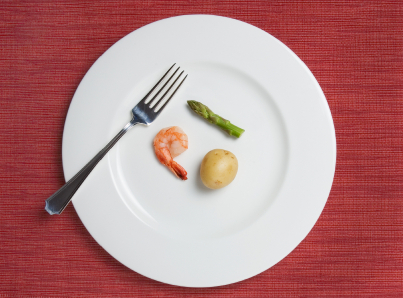How Often Should You Really Eat?
A common question I hear is “how often should I eat”, or “is it true that eating 6 small meals a day is important for fat loss?”
Let me get straight to the point. I’ve seen people exhibit ideal body fat and health when eating only once a day, and when eating non-stop all day. To a large degree – as with anything health related – it depends on the person. Having said that, in my opinion, eating 5-6 equally sized small meals is the optimal way to eat when first establishing or renewing healthy eating habits. The concept of skipping meals, whilst not necessarily a terrible idea, has been well and truly abused in that it often leads to uncontrollable hunger or cravings, which inevitably manifests itself in the form of a sugar overload. Call it grains, or fruit, or pasta, or candy – it all ends up as the same thing as far as your physiology is concerned. This approach to eating is a recipe for disaster – a vicious cycles of energy highs and slumps followed by less than ideal food choices.
How Your Metabolism Works
When creating healthy eating habits it helps to first understand your metabolism as a fire. The brighter it burns, the more effectively it is in fact burning body fat. In order for this to happen you need to regularly stoke the fire, and smart food (proteins, fats, plants and fiber) are the fuel to do just that.
Breaking The Rules
Of course it’s never as simple as a one paragraph answer, is it? As with most aspects of ideal health and fitness there are some exceptions. For example, you may have heard me mention that most people are intolerant to carbohydrate. I’ve found that the 25% or so people who can tolerate carbohydrate also tend to fare better on a less frequent meals than the typical 5-6 approach. I don’t have any science for this, it’s just my clinical experience.
Another exception lies in the following quote that I recently shared on my new Facebook page. It’s probably the best piece of nutrition advice I’ve ever heard.
“The body ignores constant stimuli. Changing everything constantly is one of the keys to success whether we are talking about training, diet, or supplements.”
Dr Rakowski
So how would that apply to meal frequency? Well, quite literally, in that regularly changing the structure with which you eat can help accelerate your results. Here’s how.
1. Make certain you’re not abusing your 5-6 meal habit in the first place. On questioning clients I commonly find out that rather than switching from 2-3 meals plus 2-3 snacks to 5-6 small meals, they’ve actually switched to 5-6 medium-large meals. Good quality or not, too much food is still too much food, and as I’ve recently been reminded, whilst hormonal reactions to food still reign supreme, calories do count. If you never ever experience hunger and excited expectation toward food, it’s a pretty safe bet you’re eating too much.
2. Consider fasting as part of a healthy approach to eating. Intermittent fasting (IF) is something I’ve recently started investigating in more detail after briefly looking into it last year. I like what I’m reading and it’s already been backed up in that recently a client whose body fat had been quite stubborn introduced IF and dropped 2 percentage points in a month. There were a couple of other changes to her regime, but still. I thought it interesting, and I’d say it’s well worth considering. Expect to hear more from me on this topic!
3. Let go of needs, musts and shoulds. As Johnny from The Lean Saloon put it,
“People believe they need to eat this or that, or eat like this or like that, when (sometimes) they simply don’t need to eat. Eating needs have been mutated so much through the generations that we no longer know its true meaning.”
A great point, and probably the most take-home one of today’s article. We’re all different, and on top of that our individual food requirements will constantly vary depending on activity, stress, health and so on. As such, the most worthwhile endeavour is learning to listen to your body. It’s tough enough to do that when you’re constantly inundated with nutrition ‘laws’ from a myriad of sources, but near impossible to do if you rigidly follow a dietary structure without ever stopping to think about the type and amount of food you intrinsically crave. I don’t know if I’d agree to letting structure fly out the window all the time, which is why I still think 5-6 small meals per day is a great starting point. My feeling – and what I’ve found to work effectively – is that once healthy eating (food choices) habits are established then you can loosen the reigns up now and then and trust yourself to eat as and when you actually require fuel rather than as and when the clock tells you.
When it comes to meal frequency what has/hasn’t worked for you? Do you have any questions on the topic that I didn’t cover in this post? Comment below!
\


Great post, addressing the phenomenon of individual differences, yet with a finger firmly on guidance and structure.
In the past I’ve competed in a bodybuilding competition (won my weight class and overall) by eating frequent smaller meals.
I’ve also gotten crazy lean on a high-carb/low fat diet one summer.
Another summer I also got crazy lean on a low-carb/high fat/high protein diet.
These days I remain crazy lean year-round by incorporating regular intermittent fasting in my lifestyle, while eating mostly wholesome food but still enjoying stuff like chocolate, cheesecake, and sweet potato fries. 🙂
I believe that — precisely as you wrote — total caloric intake is the primary determinant of body composition. There are many ways to get there, and they’re all effective at getting the body lean.
To me the key is to find a way that is reasonably low effort, healthy, and sustainable.
In my experience, and with accumulating evidence (though not proof), a lower intake of refined carbs may improve satiety, decrease hunger, and offer a very slight metabolic advantage. This improves calorie control and enhances fat loss.
I believe all of this falls in line with your message.
Best,
Johnny
Fantastic comment Johnny, thanks for chiming in! I’ve gotten lean before also on high-carb low-fat. For me that approach was a real struggle in terms of energy and wellbeing … for that reason the high-protein, high-fat approach is infinitely preferable now (as well as for health reasons), but IF is a new and very appealing tactic that I’m working on now!
I find as long as I keep my protein and fat levels high, I don’t have a problem with overeating. Its when I skip meals, eat carbs, etc is when I start having issues.
I’m the same 🙂